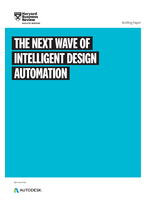International Standards Projects reflect continued growth.
Press Release Summary:
According to ASABE's Scott Cedarquist work on international standards for solid biofuels continues to expand, spurred on by needs of expanding industry. Technical Committee 238 (TC238), organized in 2007 by ISO to develop standards for solid biofuels, saw increased international participation at recent meeting, at which existing regional QA protocols were deemed adequate and group discussed new projects for thermally treated solid biofuels and safe handling of pelletized biofuels.
Original Press Release:
New International Standards Projects Reflect Continued Growth in Solid Biofuel Industry
ST JOSEPH, MICHIGAN—Work on international standards for solid biofuels continues to expand, with new projects for thermally treated solid biofuels and safe handling of pelletized biofuels the latest to be introduced within the International Organization for Standardization (ISO).
The work is being spurred by the needs of a rapidly expanding industry, according to Scott Cedarquist, of the American Society of Agricultural and Biological Engineers (ASABE), which coordinates U.S. participation in the projects. “In 2007 the ISO organized Technical Committee 238 (TC238) to develop standards for solid biofuels,” says Cedarquist. “At the fifth and most recent meeting of the committee, it was reported that international participation had grown to 36 countries from five continents.”
The committee’s primary focus in 2007 was to utilize an existing portfolio of European solid biofuel standards as the basis of ISO standards, and its work was divided into six areas: terminology, classifications, quality, physical tests, chemical tests, and sampling. Since then, the magnitude of international shipments of this important fuel source has grown, with up to 45,000-tonne allotments of wood pellets routinely being shipped from North America to Europe.
The recent meeting of TC238, hosted in Bangkok by the Thai Industrial Standards Institute, not only showed evidence of the expanded global interest in the subject area, it also reflected a slight shift in work priorities. Existing, regional quality-assurance protocols were deemed adequate, and the group spent significant time discussing new projects for thermally treated solid biofuels and safe handling of pelletized biofuels.
“Adoption of these consensus documents, when that happens, will facilitate international trade,” says Cedarquist.
In the US, ASABE coordinates the national positions on draft standards via an established committee of experts. Those interested in participating in the development of the biofuel standards are encouraged to contact Scott Cedarquist, at cedarq@asabe.org or, in Canada, ASABE member StaffanMelin, at drc@dccnet.com .
Additional details on international participation and progress can be found at: http://www.iso.org/iso/iso_technical_committee.html?commid=554401
ASABE is accredited by the American National Standards Institute (ANSI) to coordinate and develop the U.S. position in eleven distinct areas of international standards development. Committee membership is open and typically comprises individuals with an academic or commercial interest in the subject matter. Participation in standards development benefits commerce as well as the public by ensuring issues such as consumer safety and evolving technology are addressed in a thorough and timely manner and by reducing trade barriers that can occur in the absence of standardization.
A summary of all ASABE international standards activities can be found on the ASABE web site at.
http://www.asabe.org/standards/asabe-international-standards-activities.aspx
The American Society of Agricultural and Biological Engineers is an educational and scientific organization dedicated to the advancement of engineering applicable to agricultural, food, and biological systems. Founded in 1907 and headquartered in St Joseph, Michigan, ASABE comprises nearly 10,000 members from more than 100 countries. For further information about the Society, or for an electronic copy of this news release, contact Dolores Landeck at ASABE, 269-932-7039, landeck@asabe.org.




